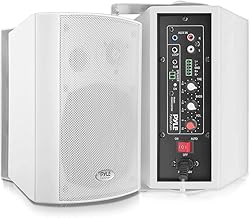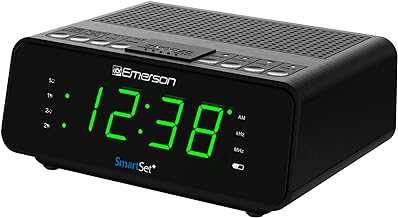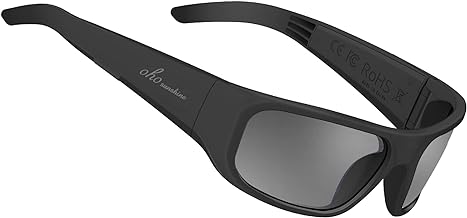5 important factors worth considering when looking for the best shortwave radios
Shortwave radios are important tools that can connect people over long distances. When choosing a shortwave radio, it’s important to consider factors like frequency coverage, sensitivity, portability, and ease of tuning. To make the best choice, it’s important to understand technical terms and specifications. By doing so, enthusiasts can find a radio that fits their preferences and intended use.
See our guide to the best shortwave radios.
Frequency coverage
When looking for a shortwave radio, it’s important to consider the range of frequencies it can pick up. Think about what kind of broadcasts you’re interested in – international, utility, or amateur radio? The frequencies a radio can receive will determine what you’re able to listen to, so it’s crucial to match your preferences with the radio’s capabilities.
Choosing a shortwave radio with a wide frequency range might seem appealing, but it could actually make listening more chaotic. Focusing on radios that can pick up the frequencies you care about will improve your listening experience by reducing unwanted noise. Remember, quality is more important than quantity when it comes to frequency coverage, so look for radios that match your interests to get the most enjoyment out of your shortwave radio.
Antenna effectiveness
When it comes to shortwave radios, the antenna plays a crucial role in how well you can listen to different signals. A high-quality antenna can greatly improve your listening experience. It is important to invest in a radio with a good antenna to capture faraway signals and ensure clear reception. A powerful antenna not only extends the range and improves the quality of the radio but also enhances its overall performance. This allows you to tune into different frequencies accurately and precisely. It’s like having a special key that gives you access to a variety of international broadcasts, emergency updates, and amateur radio communications.
In the world of shortwave radios, the antenna is what connects you to voices and sounds from around the world. It turns your radio into a gateway for exploration and discovery. With a good antenna, you can explore distant music, news, and cultures, immersing yourself in a world of sounds that go beyond borders. When choosing a shortwave radio, remember that the antenna is not just an extra part but a crucial element that can improve your listening experience. It opens up a world of communication and connection. Choose wisely, because with the right antenna, the world is truly at your fingertips.
Build quality
When buying a shortwave radio, it’s important to consider the quality of the build. The way a radio is made can affect how long it lasts, how well it works, and how easy it is to use. A radio that is well-built will be more durable and able to stand up to different conditions. Companies that use good materials and skilled craftsmanship tend to make radios that will last a long time. Choosing a shortwave radio with a strong build means you are investing in a reliable tool for all your communication needs.
In addition, the quality of a radio’s build can impact how well it functions. Radios that are carefully made are more likely to have good reception, sound quality, and be easy to use. A well-made radio will have design features that make it more comfortable and convenient for users. Choosing a shortwave radio with a solid build ensures you will have a smooth experience and shows a commitment to quality. Essentially, a radio’s build quality reflects the manufacturer’s dedication to providing a great product, not just its physical structure.
Battery life
When you’re looking to buy a shortwave radio, one important thing to think about is how long the battery will last. This is important because it affects how easy and convenient it will be to use the radio. Choosing a radio with a long-lasting battery will allow you to enjoy your favorite programs without having to constantly recharge or change batteries. It also makes the radio easier to take with you on outdoor trips or in emergencies.
When you’re shopping for shortwave radios, look for models that have power management systems that make the battery last longer. Investing in a radio with a good battery performance will save you money on buying new batteries often and make your listening experience better. A strong battery life is really important for shortwave radios, as it gives you a reliable connection to broadcasts no matter where you are. So, prioritize a radio with a good battery life for a great radio experience on all your journeys.
Price
Price is a big factor when buying shortwave radios. Higher prices usually mean better quality, like good reception and durability, plus extra features. But lower-priced radios can still work well if you’re on a tight budget.
Buyers should think about what matters most to them. A high price doesn’t always mean the radio will meet all their needs perfectly.
It’s important to think long-term when it comes to price. Spending a little more on a durable radio can save money in the end by avoiding repairs or replacements. However, if you don’t need all the fancy features, a cheaper radio might work just fine.
Ultimately, it’s about finding the right balance between price and what you need in a radio. Make sure the radio you choose fits your budget and how you plan to use it, without giving up on quality.
Conclusion
Shortwave radios show us how simple communication can bring people together across long distances. They remind us of the beauty in simplicity as we navigate through our complex world. Even with the static, crackling sounds, and faint echoes, using these small devices takes us on a journey beyond just technology, into the heart of human connection in its purest form. In a world full of distractions, shortwave radios provide a clear signal and show us the enduring appeal of traditional communication in a digital era. Want more info on dampness odor eliminator, check the best dampness odor eliminator.



